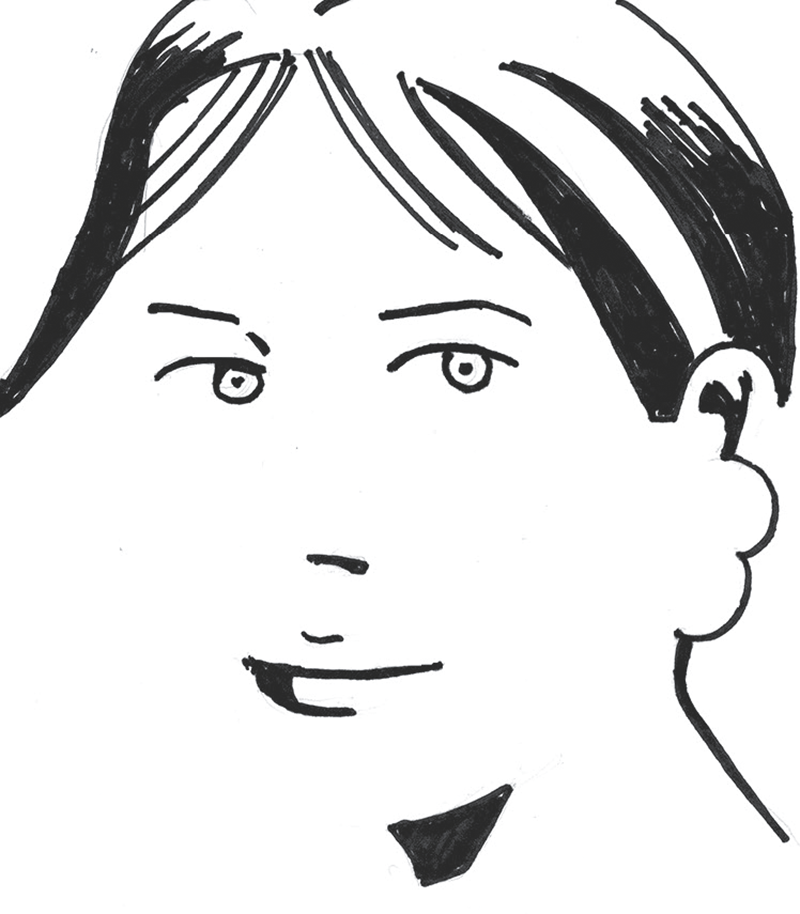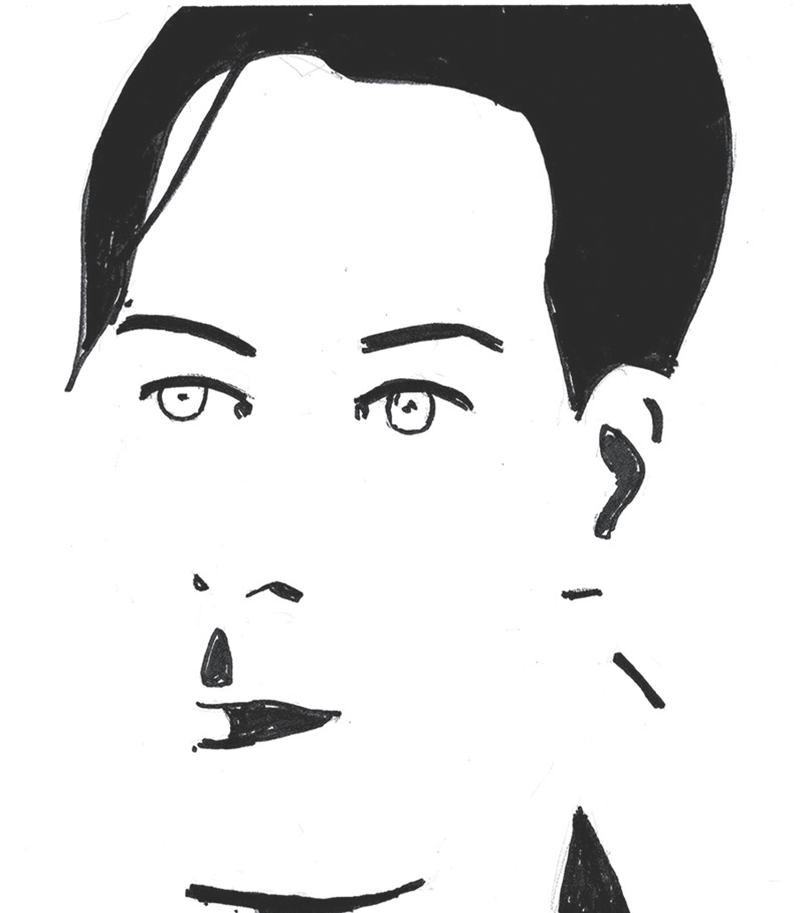From “Stories to Black-and-White Sketches by Alex Katz,” translated from the German.
the foam-born

Drawings by Alex Katz, from the series Beauty Portfolio, 2017–19 © The artist/VAGA at Artists Rights Society, New York City
The water’s edge on the coast of Cyprus consists of organic matter and “salt water shaken in a special way.” No human is capable of stirring up water from the Tethys Ocean (which already ceased to exist in antiquity, and only lives on as the eastern basin of the Mediterranean) sufficiently to produce the foam from which cypris formed. This is all assuming that a goddess can take a specific form, rather than a creature in all forms. The epithets of the great goddess are well known. But there is no star sign in which she reveals herself. The majority of stories told about her are implausible. For instance, her marriage to the weaponsmith Vulcan, who dwells inside Mount Etna, her visits to the underworld, the mendacious and indeed propagandistic story of how she paired off the sister of Clytemnestra, Helen of Mycenae, with Prince Paris of Troy. She would not have needed to be “foam-born” to do this; she could also have descended from land animals or sea monsters.
Gods come into being like original life, from the edges of happy islands, in lagoons where the waters gain time, or from the great force with which the waves crash against rocks or beaches over hundreds of years.
beauty is flawless

The beautiful Greek woman from the Waterloo Institute fascinated the physics community at the well-attended annual conference in Hawaii. Her head was wreathed in thick black hair. The tall figure strode up to the blackboard behind the lectern. With firm, screeching chalk strokes, she elaborated equations that connected the infinitely small and temporally short with the cosmically large (e.g., a protogalactic group, located in the constellation Coma Berenices, that had once spread out only three hundred thousand years away from the beginning of the world). One equation followed another with no complications. The majority of those in the hall considered both this woman and the formulae she was writing down beautiful. But the Greeks reserved the word “beauty” for the cosmos and the world of nanospheres. Her lecture proceeded from the axiom that the beauty and simplicity of equations, when they referred to such extremely disparate realities, indicate their coherence.
Do you speak of “beauty” or “splendor” when you refer to the long-expired galactic group?
Beauty.
In the sense of regularity?
There’s nothing regular about it.
So it’s complicated?
It’s not that either; it’s autonomous.
In the sense of rebellious?
Not toward my equations.
A young physicist who was attending for the first time would not have wanted to miss the moments he shared with the enchanting scholar over a cup of tea after her lecture. The goddess remained unattainable to him—not only because she was married and had no interest in adventures in the middle of the Pacific. Rather, this untouchable character seemed to the young man like a prerequisite for beauty. And how could he have installed the beauty in his laboratory or his bachelor’s quarters anyway? Only if she had been a statue.
he has the heartless eyes of one loved above all else

I’ve just returned from comforting my best friend, Gesine. In the meantime, I’m sure she won’t kill herself. The storm has not been weathered. I saw how he trashed her, then slammed the apartment door behind him. He has the delicacy to continue living with her to avoid hotel costs. He leaves her apartment and goes about his business, visiting his new mistress, a married woman for whom Gesine has been demoted.
I have to take care that my words of comfort (although I usually just gather her in my arms and put her to bed) don’t fuel her hopes of his returning to her in some fantastic shape. I saw the look in his eyes. Gesine doesn’t stand a chance. No one in the world can get something from him if he doesn’t want it. And he’s satiated, nourished by the devotion of women whose tribute he has been used to since childhood.
Strictly speaking, it’s not his eyes that document his mercilessness but his look. His eyes, on the whole, are expressionless, a bit dull. Precisely this lack of expression gives his look an unnerving “negative” quality. What Gesine ever saw in this spoiled youth is a mystery to me. Even in that first courting hour—I was there but unfortunately went home early—he was full and satiated, his look a “business” look. So I was convinced that “I didn’t even need to ignore it.” But Gesine saw something else. In his blotchy face she saw what she felt, as in a mirror.
I always thought that mothers who loved their sons sow a seed of tenderness in them, which is then harvested by the people who meet these young men later. Instead, a frugal patriarchy establishes itself in such cases, a long line of sedentary ancestors who grasp only, and ask for nothing. I get the impression that sons who don’t have to fight for their mother’s affection develop monsters inside them. I don’t want to generalize, and yet I’m doing just that. My anger at Gesine’s occupier loosens my tongue:
“He has the heartless eyes / Of one loved above all else.”





































































































